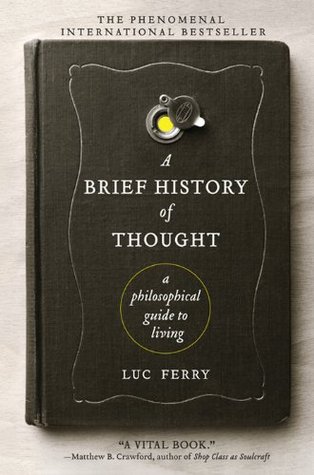More on this book
Community
Kindle Notes & Highlights
by
Luc Ferry
Read between
February 5 - March 8, 2023
‘existence precedes essence’. This is pure Rousseau, almost word for word. Animals have an ‘essence’, common to their entire species, which precedes their existence as individuals:
‘In order to ask a question, one must be two: the one who asks, and the one who is asked. Because he is part of nature, the animal cannot question nature. It seems to me that this is the distinction we are looking for. The animal is one with nature; whereas man and nature make two.’ This is a perfect translation of Rousseau’s insight:
Freedom, the virtue of disinterested action (‘good will’), and concern for the general welfare: these are the three key concepts which define the modern morality of duty, and which Kant was to express in the form of absolute commandments, known as categorical imperatives.
Descartes at a stroke invented the modern notion of revolution. As the nineteenth-century political thinker and historian Alexis de Tocqueville was to remark, the men who started the French Revolution of 1789, and who we refer to as the ‘Jacobins’, were in fact ‘Cartesians’ who had left school and taken to the streets. One
‘Our history is not our destiny.’


